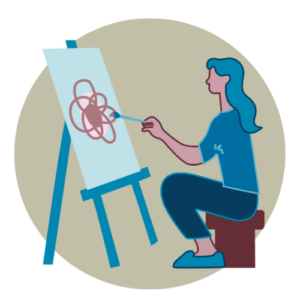Prevention is essential
Housing insecurity in Aotearoa is real. *600,000 households across Aotearoa are just one financial shock away from instability and at least 400,000 households are living on the edge. Programmes that prevent homelessness – not only manage it – through early intervention and prevention are an essential part of the housing system.
That’s why the work of housing providers across Aotearoa to deliver the Sustaining Tenancies programme is vital to support people and whānau who are facing housing insecurity and homelessness. Sustaining Tenancies programmes act as a gate at the top of the cliff rather than an ambulance at the bottom. They are cost effective and are transforming the lives of thousands of individuals and families. The impact is impressive!
Improving our response to housing insecurity and homelessness in Aotearoa New Zealand requires a whole of systems approach. By working together and using early intervention and preventative strategies, we can effectively address this complex systemic issue.
We need to help individuals and whānau sustain/retain their tenancy so they avoid homelessness. Prevention is an integral part of the housing system. It is a no-brainer!
*based on a range of 2023 national data from Stats NZ, MSD and HUD
The Sustaining Tenancies programme
prevents homelessness
The Sustaining Tenancies programme (read more about it and see a full list of providers here)prioritises housing stability through early intervention and support. It is vital for an effective and responsive housing system because it is the main homelessness prevention programme. Prevention strategies tackle the root causes of housing insecurity and homelessness. The Sustaining Tenancies programme achieves this by supporting the needs of whānau, which often contribute to them experiencing housing challenges.
Homelessness prevention delivers a significant and proven return on investment
Sustaining Tenancies is a homelessness prevention approach based on international evidence. It achieves significant time and cost savings and by intervening early to address housing challenges, resources are used more efficiently.
Return on investment data from Finland proves impressive returns. Finland’s sustaining tenancies approach saves 5,000 to 7,000 Euros per outcome per year.
In Aotearoa, Emergency Housing costs around $56,000 per year per whānau while Sustaining Tenancies costs approximately $4,800 per year per whānau.
Prevention programmes really are a no-brainer!
Social return on investment
Benefits of the Sustaining Tenancies programme reach far beyond ensuring people and families have a stable and secure place to call ‘home’, and time and cost savings. Due to the effective wraparound support delivered by housing providers, wide long-term benefits are achieved for people, government and society across:
- health
- education
- employment
- justice
- financial
- legal
- life skills
- social and community connection, and
- intergenerational change.
The social impact and benefits are enormous.
Success in action
These case studies were developed in 2024 to share the stories of individuals and whānau who, due to challenges outside their control, faced the very real threat of having nowhere to live.
The case studies:
- prove that when people can access timely and appropriate support to meet immediate housing needs, wide long-term social and wellbeing outcomes are also achieved,
- shine a light on the resilience and potential of those supported,
- demonstrate how much can be achieved when the right support is available through the right housing programme, and
- show the value of preventing homelessness through early intervention.
By limiting the pipeline into homelessness, we move closer to a just and caring Aotearoa where all people have a place to call ‘home.’
Acknowledgement
Special acknowledgement and thanks to kaimahi and leaders from LinkPeople and De Paul House for their generosity and for sharing their mahi and stories.



